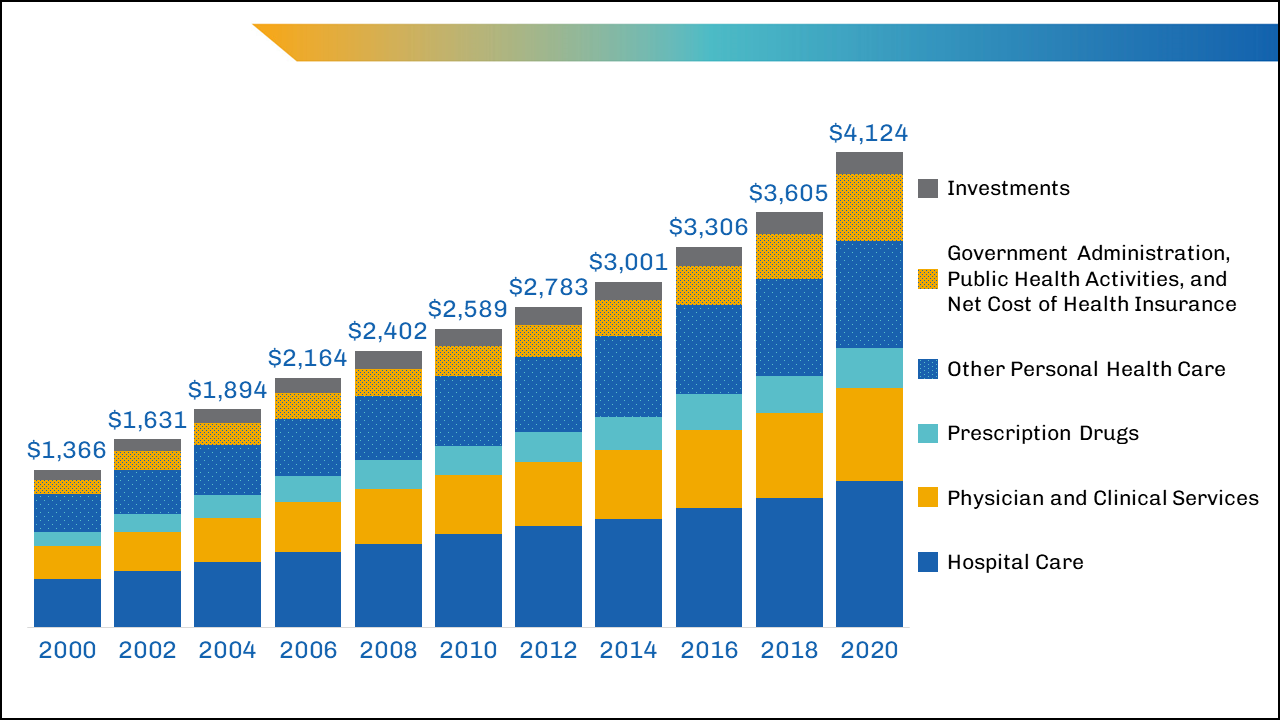Recognizing the Function of Medical Care RCM in Enhancing Financial Performance and Individual Contentment
Navigating the complexities of Medical care Profits Cycle Monitoring (RCM) is essential for achieving optimum economic performance while at the same time elevating client complete satisfaction. RCM's ability to enhance payment, make certain specific coding, and quicken insurance claims processing stands as a foundation of modern-day medical care procedures. Nevertheless, the nuanced interplay in between these components warrants a more detailed exam to totally value their effect on both health care companies and patients. As we explore the transformative possibility of RCM, concerns about its critical application and future innovations bid, appealing insights that can redefine industry criteria and person experiences alike.

Secret Components of RCM
In the facility landscape of healthcare, Profits Cycle Monitoring (RCM) is essential in ensuring economic stability and functional efficiency. An extensive RCM system encompasses numerous vital parts, each playing an important function in the seamless monitoring of a doctor's financial processes. Patient enrollment and qualification confirmation are foundational steps, ensuring that precise patient details is recorded and insurance policy protection is confirmed prior to solutions are provided. This lowers the threat of claim rejections and accelerates the compensation procedure.

Cost capture is an additional important part, including the accurate recording of solutions given to clients. It makes sure that all billable solutions are made up, thus making the most of earnings capacity. Simultaneously, clinical coding translates patient encounters into standardized codes, which are important for billing and regulative conformity.
Cases submission and administration comply with, including the preparation and entry of insurance claims to payers. This procedure calls for precise attention to information to minimize mistakes and avoid delays. Rejection monitoring is a positive method to resolve and resolve refuted insurance claims, securing profits streams.
Finally, repayment publishing and person collections finish the cycle, guaranteeing payments are properly tape-recorded and impressive equilibriums are gone after. Together, these parts create a robust framework that supports the economic and functional wellness of medical care organizations.
Impact on Financial Efficiency
Effective Income Cycle Management (RCM) considerably influences a health care organization's monetary performance by enhancing cash money circulation and minimizing income leakage. RCM incorporates the detailed payment and collection procedures that guarantee doctor efficiently manage their economic transactions from individual enrollment to final settlement. By enhancing these procedures, companies can reduce refuted claims, quicken payment cycles, and boost total economic health and wellness.
Monetary efficiency is enhanced through meticulous monitoring of invoicing procedures, which involves accurate coding and prompt entry of claims. This lowers the probability of claim denials and denials, which can substantially prevent earnings circulation if not resolved quickly. Moreover, incorporating sophisticated technology remedies helps with real-time monitoring of insurance claims and economic metrics, offering health care managers with the tools required to make informed calculated choices.

Enhancing Patient Fulfillment
While maximizing financial efficiency is a crucial purpose of Income Cycle Monitoring (RCM), it likewise plays a pivotal duty in boosting person contentment. By lowering management problems, RCM permits health care carriers to concentrate more on person care, which directly improves client fulfillment.

RCM also boosts client complete satisfaction through reliable communication. By preserving an extensive database of client information, RCM facilitates improved interaction between people and medical care service providers, guaranteeing individuals feel informed and valued.
Strategies for Efficient RCM
Attaining efficient Profits Cycle Administration (RCM) requires healthcare organizations to carry out a set of critical practices that make sure economic stability and functional effectiveness. One vital technique is the fostering of technology-driven solutions, such as integrated software application systems that improve payment processes, minimize mistakes, and improve information accuracy. These systems make it possible for real-time tracking of financial metrics, allowing for timely recognition and correction of ineffectiveness.
One more technique is the standardization of procedures across the profits cycle. Healthcare RCM. This includes creating constant policies for patient enrollment, insurance coverage confirmation, and declares handling. By guaranteeing that all personnel abide by these standards, companies can decrease discrepancies and quicken settlement collections
Team training and development likewise play an essential function in effective RCM. Well-trained personnel can effectively navigate complex payment procedures and guidelines, enhancing and lowering denials capital. Routine updates on plan adjustments and best methods assist maintain a proficient and experienced workforce.
Future Trends in RCM
As health care organizations enhance their Revenue Cycle Monitoring (RCM) strategies with modern technology and standardized procedures, focus is now turning towards the company website future patterns forming this crucial location. One considerable pattern is the combination of man-made intelligence (AI) and equipment learning to automate complex tasks, such as insurance claims processing and predictive analytics. These modern technologies are expected to decrease mistakes, increase transaction times, and supply data-driven understandings for much better decision-making.
Furthermore, the shift in the direction of value-based care proceeds to affect RCM methods - Healthcare RCM. Doctor are anticipated to increasingly concentrate on person outcomes and contentment, necessitating RCM systems that can accommodate brand-new compensation models. This change will certainly call for more detailed information collection and evaluation to efficiently measure and report on performance metrics
Interoperability is one more emerging concern, as smooth information exchange between diverse systems becomes crucial. Enhanced interoperability will assist in more accurate person info sharing, minimizing administrative burdens and enhancing the client experience.
Conclusion
Medical Care Income Cycle Monitoring (RCM) considerably influences both economic efficiency and individual satisfaction by enhancing invoicing processes, making certain precise coding, and making it possible for punctual claims submission. Reliable RCM minimizes revenue leak and accelerates capital, lowering claim rejections and quickening repayments. This performance fosters trust and contentment amongst patients. RCM systems also help with better interaction and flexible payment options, developing a patient-centered experience. Future RCM fads will likely concentrate on additional integrating innovation to improve these benefits.
Browsing the intricacies of Medical care Earnings Cycle Monitoring (RCM) is important for attaining ideal economic performance while concurrently boosting client contentment. RCM encompasses the thorough invoicing and collection processes that guarantee medical care service providers effectively handle their economic deals from patient enrollment to final repayment. By lowering management burdens, RCM allows medical care providers to focus a lot more on individual treatment, which straight boosts patient contentment.
By preserving a detailed data source of individual info, RCM promotes boosted interaction in between patients and medical care companies, making sure individuals feel notified and valued.Healthcare Income Cycle Management (RCM) considerably influences both monetary performance and patient satisfaction by optimizing payment procedures, making sure exact coding, and allowing prompt claims entry.